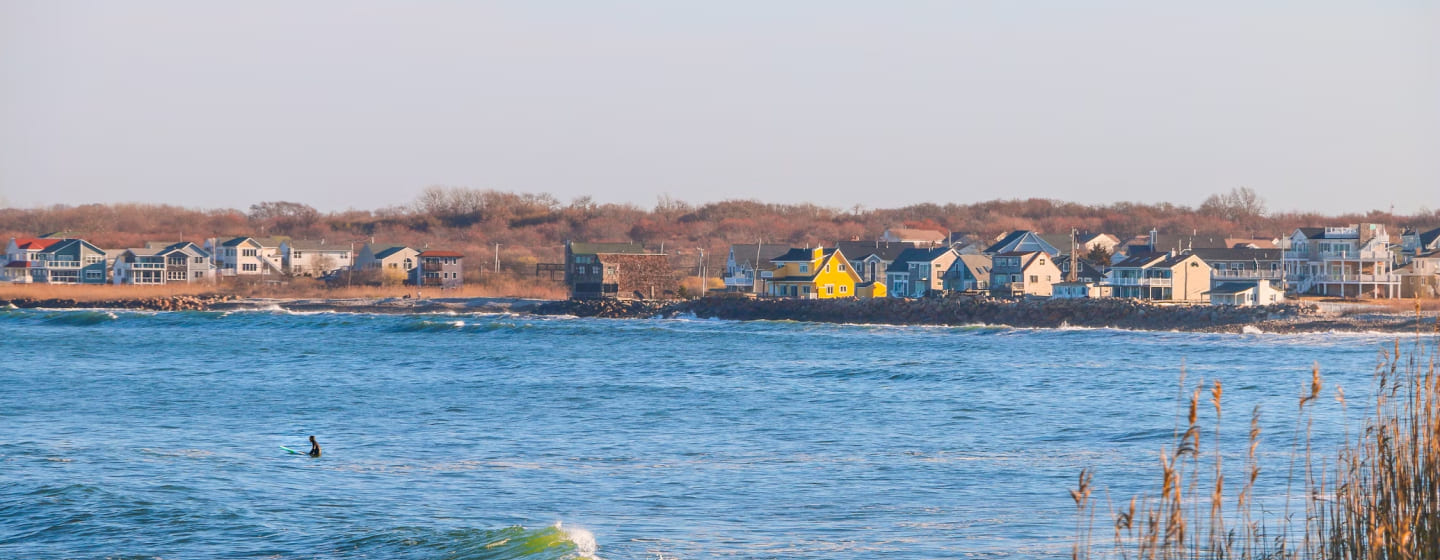Beyond the Freeze: A Psychologist’s Guide to Dating in Boston
Welcome. Take a seat. Let’s talk about dating. Specifically, let’s talk about dating in Boston.
For years, I’ve listened to stories in my office – tales of awkward first dates over clam chowder, hopeful glances across crowded Faneuil Hall, the sting of ghosting after a walk along the Esplanade, and the quiet joy of finding a kindred spirit in a city steeped in history and bustling with modern life.
While the core human need for connection remains universal, the environment in which we seek it profoundly shapes the experience.
And Boston, my dear reader, is an environment with a personality all its own.
Often, the first thing people mention about dating here is the perceived “Boston Freeze.”
The stereotype of the reserved, perhaps slightly stoic New Englander, less prone to effusive greetings or spontaneous vulnerability.
While a stereotype, all good stereotypes hold a grain of truth, born from observation.
My role isn’t to confirm or deny this definitively, but to help you understand how to navigate perceptions and realities, and to cultivate genuine connection regardless of the ambient temperature – be it meteorological or emotional.

Decoding the Urban Tapestry: Diagnosing the Boston Dating Climate
What is the unique psychological landscape of dating in the Hub? Several factors often come into play:
The Intellectual Intensity
Boston is a city of minds. Academia permeates the air. This can mean highly stimulating conversation, a shared love for learning, and partners with diverse, fascinating fields of study.
It can also mean intense focus, busy schedules tied to academic calendars or research, and a tendency to live “in their heads” rather than fully in the present emotional moment.
The Neighborhood Silos
Boston is a city of distinct villages. The North End feels different from the South End, which feels different from Cambridge or Somerville.
People can sometimes stay within their geographic or social bubble, making it feel like you’re dating within a smaller pool than a city of this size suggests.
Psychologically, this can lead to confirmation bias – only meeting people who reinforce your existing worldview – or make it harder to stumble upon serendipitous connections outside your usual haunts.
The Transient Population
With so many universities and burgeoning industries (tech, biotech), there’s a significant ebb and flow of people.
While providing variety, it can also lead to apprehension about investing in someone who might only be here for a few years.
This can contribute to a reluctance to fully commit for fear of future separation, sometimes manifesting as emotional unavailability.
The Pace and Priorities
Boston is a fast-paced city driven by ambition. Careers, studies, and personal pursuits often take center stage.
Finding time and emotional energy for dating requires intentionality.
The psychological challenge here is balancing an independent, driven life with the compromises and time investment needed for a burgeoning relationship.
Recognizing these elements isn’t about making excuses or feeling defeated. It’s about gaining insight into the potential dynamics you might encounter.
Think of me as your guide, pointing out the historical markers and potential detours on your dating map.
The Psychologist’s Prescription: Navigating the Channels of Connection
So, how do you move “Beyond the Freeze” and find warmth and connection in this unique city?
Here are a few strategies rooted in psychological principles:
Shift Your Mindset from “Finding The One” to “Cultivating Connection”
The pressure of finding your soulmate on every first date is immense and often crippling.
Instead, view each interaction as an opportunity to connect with another human being, learn something new (about them, about yourself, about your city), and practice the art of relating.
This immediately lowers stakes and reduces anxiety, allowing your genuine self to emerge.
Embrace Shared Activity Over Static Interrogation
While coffee or drinks are standard, Boston offers a wealth of activities perfect for a first or second date.
Think museums (Isabella Stewart Gardner, MFA), historical walks (Freedom Trail, Black Heritage Trail), exploring neighborhoods (Beacon Hill, Harvard Square), visiting markets (Boston Public Market), or catching a live show.
Why is this psychologically helpful? Shared experiences create common ground, provide natural conversation starters beyond the usual “what do you do?”, and allow you to see how someone interacts with the world around them – a far better indicator of compatibility than an hour of Q&A.
Practice Mindful Presence: In a city buzzing with intellectual energy, it’s easy to get lost in analysis – dissecting their every word, predicting the future, comparing them to others.
Stop. On a date, practice being fully present. Listen actively, pay attention to non-verbal cues, and engage with genuine curiosity.
Authenticity is magnetic, and it stems from being grounded in the moment, not lost in your head.
Understand the Nuance of “Reserved”
That perceived “freeze” isn’t necessarily rejection. It might be caution, respect for personal space, or simply a different cultural style of initial interaction compared to, say, New York or a Southern city.
Don’t take a lack of immediate effusiveness personally.
Give it a moment. Look for smaller cues – genuine smiles, engaged eye contact, thoughtful questions – they are often there beneath the surface.
Utilize the City’s Rhythms
Boston’s seasons offer natural shifts in dating opportunities. The coziness of fall and winter might lend itself to intimate indoor dates (a quiet bar, a home-cooked meal if things progress).
Spring and summer burst open with outdoor possibilities – picnics on the Common, kayaking on the Charles, outdoor concerts, Red Sox games.
Aligning your dating activities with the city’s natural energy can make the process feel less forced and more enjoyable.
Set Healthy Boundaries
Being open to connection doesn’t mean sacrificing your well-being. Be clear (kindly) about your availability, what you’re looking for (when appropriate), and your expectations.
If someone consistently cancels last minute, is vague about plans, or makes you feel uncomfortable, it’s psychologically healthier to disengage. Your time and emotional energy are valuable resources.
From Pixels to Pavements: Cultivating Authentic Encounters
Dating apps are, for many, a necessity in a busy urban environment. They are tools for introduction, nothing more.
The real work – the psychological work of building connection – happens face-to-face.
When moving from app to in-person:
- Don’t Prolong the Chatting Phase Excessively: Aim to meet relatively soon after establishing mutual interest. Endless texting can create a fantasy persona that the real-life meeting can’t possibly match, leading to disappointment.
- Suggest a Low-Stakes, Engaging First Date: Revisit point #2. A walk through a historic neighborhood, a visit to a lesser-known museum wing, or grabbing a pastry and walking along the water are often better than a tense, hours-long dinner where the only focus is conversation.
- Manage Expectations: The person you meet might have presented a carefully curated version of themselves online. Be prepared for them to be slightly different. This is true for everyone! Approach the meeting with an open mind and genuine curiosity.

FlirtForDate.com: The whole truth of the creation and my personal experience on a dating and hookup site.
Finding Your Compass: Building Community (and Finding Love) in the Hub
While much dating advice focuses on the one-on-one date, it’s crucial to remember that many lasting connections are forged within communities.
Boston, with its countless universities, cultural institutions, sports leagues, volunteer organizations, and interest-based groups, offers fertile ground for meeting like-minded individuals organically.
Psychologically, meeting people through shared activities or communities reduces the pressure inherent in a dedicated “date.”
You see people in their element, interacting with others, pursuing their passions.
This provides a more holistic view of their personality and offers a natural foundation for connection based on shared values and interests.

The Enduring Connection: Your Boston Dating Journey
Dating in Boston isn’t always easy. It requires navigating unique social cues, managing ambitious schedules, and sometimes pushing past initial reserve.
But it also offers the chance to connect with fascinating, intelligent, often deeply principled people against a backdrop of rich history and vibrant culture.
As a psychologist, my hope is not to give you a magic formula, but to offer perspective and tools.
Approach dating in Boston with self-awareness, a sense of adventure, and a commitment to authenticity.
Be patient with the process, be kind to yourself through the ups and downs, and remember that cultivating connection is a skill that grows with practice.
The cobbled streets tell stories of centuries past. Your own story of connection in this city is waiting to be written.
Approach it with an open heart and a curious mind, and you might just find the warmth you seek, right here in the heart of the Hub.
Frequently Asked Questions: Navigating Boston’s Dating Scene
Here are some common questions I hear, with insights tailored to the Boston context:
While it’s a simplification, there’s often a perceived initial reserve in Boston compared to perhaps more overtly friendly cities.
Psychologically, this might stem from cultural norms, a busy pace of life, or a valuation of authenticity over superficial pleasantries.
Don’t take it personally! Approach interactions with genuine warmth and patience. Be polite, make eye contact, and ask open-ended questions.
Sometimes, a little consistent warmth is all it takes to break through perceived barriers. Focus on shared activities where conversation flows naturally rather than high-pressure Q&A sessions.
Excellent question! Think activities that allow for conversation but aren’t solely focused on it.
Museums: Pick a smaller one or a specific exhibit (Isabella Stewart Gardner is lovely, the MFA is vast but choose a wing).
Scenic Walks: Explore Beacon Hill, walk along the Esplanade (weather permitting), stroll through the Public Garden.
Markets/Food Halls: Boston Public Market, Quincy Market (can be touristy but offers options). Grab a coffee, pastry, or snack and wander.
Browsing Bookstores: Brattle Book Shop (outdoor section is unique), Trident Booksellers (cafe inside).
Historical Sites: Walk part of the Freedom Trail or explore the Charlestown Navy Yard.
Casual Cafes with Atmosphere: Find a cozy spot in a neighborhood like the South End.
It definitely creates rhythms! Winter often leads to more indoor, cozy dates (movies, cooking in, visiting cafes, museums).
Summer is prime time for outdoor activities (parks, beaches within reach, outdoor concerts, patios, Red Sox games).
Don’t let winter deter you; embrace the “hygge” and plan dates that make the most of the season.
Be prepared for cancellations due to major snowstorms, but otherwise, a little rain or cold shouldn’t derail a date if you’re both willing and dressed appropriately!
Yes, absolutely. The scene for students (18-22) is heavily centered around university events and campus life, often more casual.
Young professionals (23-35) might frequent bars, dating apps, and work-related events, balancing careers with dating.
The 35+ scene might involve more focused dating apps, meeting through friends with families, or connecting around established hobbies and community roles.
Each group has its own unique challenges and common meeting grounds. Regardless of age, focusing on shared interests and values remains key.
